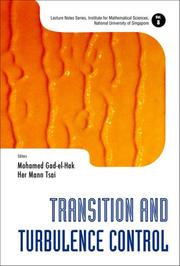| Listing 1 - 8 of 8 |
Sort by
|

ISBN: 0849300770 9780849300776 Year: 2002 Publisher: Boca Raton (Fla.): CRC,
Abstract | Keywords | Export | Availability | Bookmark
 Loading...
Loading...Choose an application
- Reference Manager
- EndNote
- RefWorks (Direct export to RefWorks)
Applied physical engineering --- Mechanical engineering --- Microelectromechanical systems --- Engineering, Mechanical --- Engineering --- Machinery --- Steam engineering --- MEMS (Microelectromechanical systems) --- Micro-electro-mechanical systems --- Micro-machinery --- Microelectromechanical devices --- Micromachinery --- Micromachines --- Micromechanical devices --- Micromechanical systems --- Electromechanical devices --- Microtechnology --- Mechatronics --- Mechanical engineering - Handbooks, manuals, etc. --- Microelectromechanical systems - Handbooks, manuals, etc.

ISBN: 9780511535963 9780521872935 9780511397165 051139716X 0511397933 9780511397936 0511398727 9780511398728 1281383716 9781281383716 0511400519 9780511400513 0511396430 9780511396434 0521872936 9780511400513 0511535961 1107180953 9786611383718 Year: 2008 Publisher: Cambridge ; New York : Cambridge University Press,
Abstract | Keywords | Export | Availability | Bookmark
 Loading...
Loading...Choose an application
- Reference Manager
- EndNote
- RefWorks (Direct export to RefWorks)
'Extreme' events - including climatic events, such as hurricanes, tornadoes, drought - can cause massive disruption to society, including large death tolls and property damage in the billions of dollars. Events in recent years have shown the importance of being prepared and that countries need to work together to help alleviate the resulting pain and suffering. This volume presents an integrated review of the broad research field of large-scale disasters. It establishes a common framework for predicting, controlling and managing both manmade and natural disasters. There is a particular focus on events caused by weather and climate change. Other topics include air pollution, tsunamis, disaster modeling, the use of remote sensing and the logistics of disaster management. It will appeal to scientists, engineers, first responders and health-care professionals, in addition to graduate students and researchers who have an interest in the prediction, prevention or mitigation of large-scale disasters.
Natural disasters. --- Natural disaster warning systems. --- Natural disasters --- Hazardous geographic environments --- Environments, Hazardous geographic --- Disasters --- Human ecology --- Natural calamities --- Disaster warning systems, Natural --- Warning systems, Natural disaster --- Emergency communication systems --- Risk assessment. --- Environmental Sciences --- Atmospheric Science
Book
ISBN: 3540511369 Year: 1989 Publisher: Berlin : Springer,
Abstract | Keywords | Export | Availability | Bookmark
 Loading...
Loading...Choose an application
- Reference Manager
- EndNote
- RefWorks (Direct export to RefWorks)
Book
ISBN: 3540512969 Year: 1989 Publisher: Berlin : Springer,
Abstract | Keywords | Export | Availability | Bookmark
 Loading...
Loading...Choose an application
- Reference Manager
- EndNote
- RefWorks (Direct export to RefWorks)
Book
ISBN: 0511529538 Year: 2000 Publisher: Cambridge : Cambridge University Press,
Abstract | Keywords | Export | Availability | Bookmark
 Loading...
Loading...Choose an application
- Reference Manager
- EndNote
- RefWorks (Direct export to RefWorks)
The ability to actively or passively manipulate a flow field to bring about a desired change is of immense technological importance. The potential benefits of improving flow control systems range from saving billions of dollars in fuel costs for land, air and sea vehicles to achieving more economically competitive and environmentally sound industrial processes involving fluid flows. This book provides a thorough treatment of the basics of flow control and control practices that can be used to produce desired effects. Among topics covered are transition delay, separation prevention, drag reduction, lift augmentation, turbulence suppression, noise abatement, and heat and mass transfer enhancement. The final chapter explores the frontiers of flow control strategies, especially as applied to turbulent flows. Intended for engineering and physics students, researchers and practitioners, Flow Control brings together in a single source a wealth of information on practices and developments in this very active field.

ISBN: 1281372617 9786611372613 9812700897 9789812700896 9789812564702 9812564705 9789812565945 9812565949 9812564705 9812565949 9781281372611 661137261X Year: 2006 Publisher: Hackensack, NJ World Scientific
Abstract | Keywords | Export | Availability | Bookmark
 Loading...
Loading...Choose an application
- Reference Manager
- EndNote
- RefWorks (Direct export to RefWorks)
This volume contains articles based on lectures given at the Workshop on Transition and Turbulence Control, hosted by the Institute for Mathematical Sciences, National University of Singapore, 8-10 December 2004. The lecturers included 13 of the world's foremost experts in the control of transitioning and turbulent flows. The chapters cover a wide range of subjects in the broad area of flow control, and will be useful to researchers working in this area in academia, government laboratories and industry. The coverage includes control theory, passive, active and reactive methods for controlling
Turbulence --- Fluid dynamics --- Transition flow --- Flow, Transition --- Transitional flow --- Stability
Book
Year: 1986 Publisher: Washington, DC : National Aeronautics and Space Administration, Scientific and Technical Information Branch,
Abstract | Keywords | Export | Availability | Bookmark
 Loading...
Loading...Choose an application
- Reference Manager
- EndNote
- RefWorks (Direct export to RefWorks)
Book
Year: 1987 Publisher: Hampton, Virginia : National Aeronautics and Space Administration, Langley Research Center,
Abstract | Keywords | Export | Availability | Bookmark
 Loading...
Loading...Choose an application
- Reference Manager
- EndNote
- RefWorks (Direct export to RefWorks)
| Listing 1 - 8 of 8 |
Sort by
|

 Search
Search Feedback
Feedback About UniCat
About UniCat  Help
Help News
News